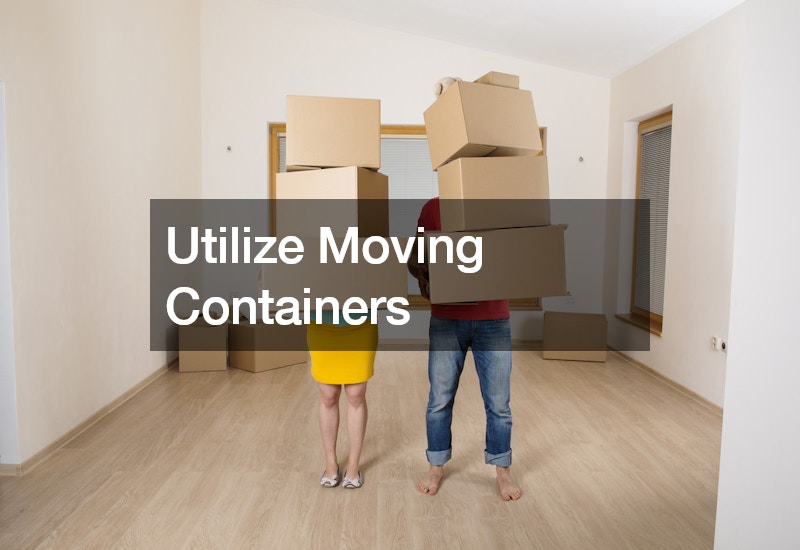
Relocating a business can be a daunting task, filled with logistical challenges and potential disruptions. However, with proper planning and the right strategies, can make the move smooth and cost-effective. This guide provides frugal and efficient tips for handling your business relocation, ensuring minimal downtime and maximum efficiency.
Start with a Detailed Plan
The first step in any successful business relocation is to create a detailed plan. This plan should outline every aspect of the move, from the timeline and budget to the specific tasks that need to be completed. Having a clear plan will help you stay organized and ensure that nothing is overlooked.
Start by setting a realistic timeline for the move. Consider factors such as the lease expiration of your current location, the availability of your new space, and any necessary renovations or customizations. Assign a project manager to oversee the relocation process and ensure that all tasks are completed on time.
Budget Wisely

Relocating a business can be expensive, but careful budgeting can help you manage costs effectively. Start by getting quotes from various moving companies and compare their services and rates. Opt for local moving services, as they are often more affordable and familiar with the area.
Include all potential expenses in your budget, such as packing supplies, transportation costs, and any fees associated with setting up utilities or internet at the new location. It’s also wise to set aside a contingency fund for unexpected expenses that may arise during the move.
Declutter and Downsize
Before you start packing, take the time to declutter and downsize your office. Go through your inventory and determine what items are essential and what can be discarded or donated. This will not only reduce the amount of stuff you need to move but also save on moving costs.
Consider selling or donating old furniture, equipment, and supplies that are no longer needed. This can help you raise funds for the move and make the relocation process more manageable. Additionally, decluttering can make your new office space more organized and efficient.
Pack Strategically
Packing is a crucial part of the moving process, and doing it right can save you time and money. Start by gathering packing supplies such as boxes, bubble wrap, and packing tape. Label each box clearly with its contents and the room it belongs to in the new office.
Consider using custom shipping crates for fragile or valuable items. These crates provide extra protection and can help prevent damage during transit. You can also save money by reusing boxes and packing materials from your previous shipments or asking local businesses for their spare boxes.
Utilize Moving Containers

Moving container companies offer a cost-effective and flexible solution for business relocations. These containers can be delivered to your current location, allowing you to pack at your own pace. Once packed, the containers are transported to your new office, where you can unpack at your convenience.
Moving containers are especially useful if you need temporary storage during the transition. They provide a secure and convenient way to store your items until your new office is ready. Additionally, using moving containers can reduce the need for traditional moving trucks, saving you money on transportation costs.
Hire Professional Movers
While it may be tempting to handle the move yourself, hiring professional movers can save you time, effort, and potential headaches. Professional moving companies have the experience and equipment needed to handle business relocations efficiently.
When choosing a moving company, look for one that specializes in commercial moves. These companies understand the unique challenges of relocating a business and can provide tailored services to meet your needs. Be sure to check reviews and ask for references to ensure you hire a reputable company.
Address Auto Detailing Business Challenges
If your business involves auto detailing, moving can present unique challenges. Ensuring that your equipment and supplies are transported safely and set up correctly at the new location is crucial. Consider hiring specialized movers who have experience with auto detailing businesses.
Additionally, inform your clients about the move well in advance and provide updates on when services will resume. This will help maintain customer loyalty and minimize disruptions to your business operations.
Prepare for Utility Transfers
One often overlooked aspect of business relocation is transferring utilities and services to the new location. This includes electricity, water, internet, and phone services. Contact your service providers well in advance to schedule the transfer or installation of these services at your new office.
Don’t forget to update your address with all relevant parties, including suppliers, clients, and financial institutions. This will ensure a smooth transition and prevent any disruptions to your business operations.
Coordinate with Land Clearing Service Providers
If your new location requires land clearing or other site preparation work, coordinate with a reputable land clearing service provider. These professionals can help prepare the site for construction or renovation, ensuring that your new office space is ready for occupancy.
Be sure to schedule land clearing services well in advance to avoid any delays in your relocation timeline. Working with experienced contractors can help ensure that the job is done efficiently and within budget.
Plan for Office Setup and Layout

Once you’ve moved your belongings to the new office, it’s time to set up and organize the space. Plan the office layout in advance to ensure a functional and efficient workspace. Consider the needs of your employees and the nature of your business when designing the layout.
Arrange furniture and equipment in a way that promotes productivity and minimizes clutter. Ensure that all necessary utilities and services are set up and functioning properly before employees start working in the new office.
Hire Professional Services for Specialized Tasks
During a business relocation, you may encounter tasks that require specialized services. For example, if you need to install or repair commercial HVAC systems, it’s best to hire professional commercial HVAC services. These experts can ensure that your heating and cooling systems are installed correctly and function efficiently.
Similarly, if your new office requires any demolition work, hire experienced demolition contractors to handle the job safely and efficiently. Professional contractors have the necessary equipment and expertise to carry out demolition work without causing damage to the surrounding structures.
Address Drain Clogs and Plumbing Issues
Plumbing issues such as drain clogs can cause significant disruptions to your business operations. Before moving into the new office, have the plumbing system inspected and address any potential issues. This includes checking for drain clogs, leaks, and other plumbing problems.
Hiring a professional plumber to conduct a thorough inspection can help prevent unexpected plumbing issues that could affect your business. Ensuring that the plumbing system is in good working order will provide a smooth transition and minimize disruptions.
Secure Your New Office
Security is a top priority when relocating your business. Before moving in, ensure that your new office is secure by installing locks, security cameras, and alarm systems. Hiring professional locksmiths to change the locks and provide additional security measures can give you peace of mind.
Inform your employees about the security protocols and ensure that everyone knows how to access the new office safely. Secure storage for valuable items and sensitive documents to prevent theft or loss during the transition.
Update Marketing Materials and Online Presence

Relocating your business means updating your address on all marketing materials, including business cards, brochures, and your website. Ensure that your online presence reflects your new location to avoid confusion among clients and customers.
Inform your clients and partners about the move through email newsletters, social media updates, and announcements on your website. Providing clear and consistent information about your new address and any changes to your business operations will help maintain customer trust and loyalty.
Address Custom Shipping Crate Needs
If your business involves shipping products, consider the need for custom shipping crates. These crates provide added protection for your items during transit, reducing the risk of damage. Custom shipping crates can be designed to fit your specific products, ensuring that they arrive safely at their destination.
Work with a reliable supplier to design and manufacture custom shipping crates that meet your needs. Investing in quality shipping crates can save you money in the long run by preventing product damage and returns.
Ensure Smooth Transition for Employees
Your employees play a crucial role in the success of your business relocation. Ensure a smooth transition for them by providing clear communication and support throughout the process. Inform employees about the move well in advance and provide updates on the relocation timeline.
Consider offering relocation assistance, such as covering moving expenses or providing temporary housing if needed. Supporting your employees during the move can help maintain morale and productivity, ensuring a successful transition to the new office.
Conduct a Final Walkthrough
Before officially moving into your new office, conduct a final walkthrough to ensure that everything is in order. Check that all utilities and services are functioning correctly, and that the office is clean and ready for occupancy. Address any issues that may have arisen during the move to avoid disruptions to your business operations.
A final walkthrough provides an opportunity to ensure that all tasks have been completed and that the new office meets your expectations. It also allows you to make any last-minute adjustments before employees start working in the new space.
Consider the Environmental Impact
Relocating a business can have a significant environmental impact. Consider ways to minimize this impact by using eco-friendly packing materials, recycling unwanted items, and choosing energy-efficient equipment for your new office.
Work with moving companies that prioritize sustainability and use fuel-efficient vehicles. Implementing green practices during your relocation can reduce your carbon footprint and promote a positive image for your business.
Post-Move Evaluation
After the move is complete, conduct a post-move evaluation to assess the success of the relocation. Gather feedback from employees and identify any areas for improvement. This evaluation can help you learn from the experience and make future moves even more efficient and cost-effective.
Celebrate the successful move with your team to acknowledge their hard work and dedication. A positive post-move environment can boost morale and set the stage for a productive and successful future in your new office.
Enhance Your New Office Environment
Moving to a new location provides an excellent opportunity to enhance your office environment. Consider ways to make the space more comfortable and conducive to productivity. This might include ergonomic furniture, improved lighting, and creating spaces for collaboration and relaxation.
Investing in your office environment can lead to happier, more productive employees. A well-designed office space can also impress clients and partners, reflecting positively on your business.
Leverage Technology for a Seamless Transition
Technology can play a significant role in ensuring a smooth business relocation. Use project management software to keep track of tasks, deadlines, and responsibilities. Cloud storage solutions can ensure that important documents and data are accessible from anywhere, minimizing disruptions during the move.
Consider holding virtual meetings to keep everyone informed and on the same page throughout the relocation process. Utilizing technology effectively can streamline the move and help you stay organized.
Engage Employees in the Relocation Process
Involving your employees in the relocation process can lead to a smoother transition. Create a relocation committee with representatives from different departments to gather input and address concerns. This can help ensure that the new office meets the needs of all employees.
Provide opportunities for employees to visit the new location before the move. This can help them get acquainted with the space and reduce any anxiety about the change. Engaging employees in the process can lead to better outcomes and a more positive relocation experience.
Maintain Customer Communication
Maintaining clear communication with your customers during the relocation is crucial. Inform them about the move well in advance and provide updates on any changes to your services. This can help maintain customer loyalty and prevent any misunderstandings or disruptions.
Consider offering special promotions or discounts to customers during the relocation period. This can help keep them engaged and show appreciation for their patience and understanding.
Utilize Temporary Workspaces
If your new office is not ready for occupancy by the move date, consider utilizing temporary workspaces. Co-working spaces and short-term office rentals can provide a temporary solution for your business operations. This can help ensure continuity and minimize downtime.
Ensure that your employees have the necessary tools and resources to work effectively in the temporary space. Clear communication and organization are key to managing this transition smoothly.
Invest in Training and Development
A business relocation can be an excellent opportunity to invest in training and development for your employees. Consider offering workshops or training sessions on new tools, processes, or skills that can enhance productivity in the new office.
Supporting your employees’ professional growth can lead to a more skilled and motivated workforce. It can also help them adapt more quickly to the new environment and any changes in workflow or responsibilities.
Optimize the Move for Tax Benefits
Business relocations can have tax implications, and optimizing the move for tax benefits can save you money. Consult with a tax professional to understand the potential deductions and credits available for moving expenses.
Document all moving-related expenses carefully, including transportation, packing supplies, and any fees associated with setting up utilities or services at the new location. Proper documentation can help you take full advantage of any tax benefits available.
Network with Local Businesses
Relocating to a new area provides an excellent opportunity to network with local businesses. Join local business associations or chambers of commerce to build relationships and explore potential partnerships.
Networking can help you integrate into the local business community and attract new customers. It can also provide valuable insights and support as you establish your business in the new location.
Plan for Future Growth
When relocating your business, it’s essential to consider future growth. Choose a location and office space that can accommodate your business’s expansion plans. This can save you the hassle and expense of relocating again in the near future.
Consider the potential for growth in the local market and whether the new location offers opportunities for business development. Planning for the future can help ensure the long-term success of your business in the new location.
Develop a Contingency Plan
Despite careful planning, unexpected issues can arise during a business relocation. Develop a contingency plan to address potential problems such as delays, damaged equipment, or unforeseen expenses.
Having a contingency plan in place can help you respond quickly and effectively to any challenges that arise. This can minimize disruptions and ensure that your business operations continue smoothly.
Handling a business relocation requires careful planning, budgeting, and execution. By following these frugal and efficient tips, you can ensure a smooth transition with minimal disruptions to your business operations. From hiring professional moving services to addressing specialized needs such as auto detailing business challenges and custom shipping crates, each step plays a crucial role in the success of your move.
Remember to keep your employees informed and supported throughout the process, and don’t forget to update your marketing materials and online presence to reflect your new location. With the right strategies and a proactive approach, you can handle your business relocation efficiently and cost-effectively.
By considering factors such as technology, employee engagement, customer communication, and environmental impact, you can ensure a successful relocation that sets the stage for future growth and success. Implement these tips to make your business relocation a seamless and positive experience for everyone involved.



